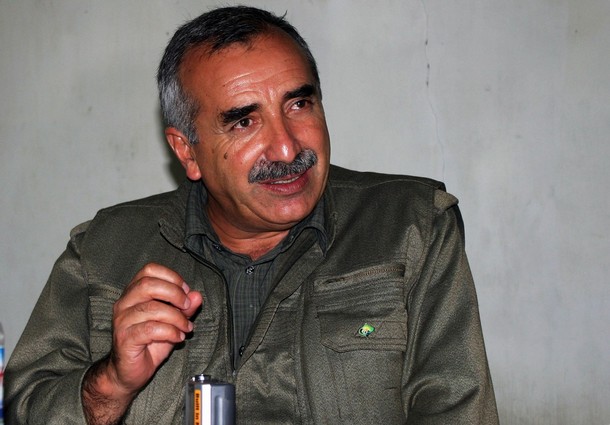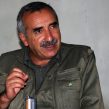
Ankara Considering PKK’s Proposals on Dialog
Publication: Eurasia Daily Monitor Volume: 6 Issue: 88
By:

Turkey, the United States and the Kurdistan Regional Government (KRG) have long worked toward ending the conflict between the PKK and Turkey. On the one hand, the Kurdish leaders in Iraq tried to set up a national conference in May, to declare a memorandum calling on the PKK to lay down its arms. However, Turkey has increased its cooperation with the U.S. and Iraqi Kurds in order to end the conflict militarily if the PKK refuses to end its armed struggle (EDM, April 16).
Against this background the PKK declared a unilateral ceasefire in March and extended it until June 1. Despite that ceasefire, however, the PKK targeted Turkish military units several times within the last two weeks killing at least 11 soldiers (Hurriyet, Milliyet, April 30, Zaman, May, 6).
While these developments surrounding the PKK were taking place, the Turkish and Kurdish communities were uncertain as to the thinking within the PKK concerning these recent events. The PKK released several press statements about various issues, including the Kurdish national conference, the election process, and the rapprochement between the KRG and Turkey (Radikal, March 19).
The PKK’s acting leader Murat Karayilan gave an interview to the Turkish press sharing the organization’s view of these issues. In February 2008, the Chief editor of the liberal daily Taraf, a widely read newspaper among Kurds, went to Kandil mountain to interview Karayilan, though he refused to speak to the Turkish press at that time (Febuary 3, 2008). It now seems that Karayilan decided that it was an appropriate moment for the PKK to hold such an interview. Consequently, the well known journalist Hasan Cemal, was invited to Kandil mountain for an exclusive interview to discover the PKK’s thinking on the possibility of peace between Turkey and the Kurds (Milliyet, May 5).
In the interview Karayilan stated, "We do not have any intention to propagate the PKK’s views. We are optimistic and have hopes for peace. That is why we decided to talk to you" (Milliyet, May 5). Karayilan on behalf of the PKK, outlined that the parties have reached a historic moment in their quest for peace: "After 1993 this is the second opportunity that we have gained, bringing peace closer. As a first step toward peace, what needs to be done is to stop the clashes between the two sides. No-one should fire on the other side" (Milliyet, May 5).
Karayilan argued that no-one could defeat the PKK by military means, and the struggle during the last 25 years had proven this point. After ensuring that no-one targets the other side, the next step is to negotiate with Abdullah Ocalan, the imprisoned PKK leader. If Turkey does not want to negotiate with him, the alternative is to negotiate directly with the PKK leadership. Failing that, either the [pro-PKK] Democratic Society Party (DTP) or a "wise man committee," composed of respected people, such as Ilter Turkmen, the former minister of foreign affairs, could establish dialog with the state (Milliyet, May 5).
It is the first time that the PKK has accepted at this level the idea of dialog between a "wise man committee" and Turkey. However, neither the PKK nor the Turkish government has the political culture to establish such a dialog. That process could only be possible if the EU pressures the Turkish government and the PKK to accept such steps toward finding a solution for the Kurdish question.
Karayilan listed the PKK’s demands on the ruling government:
"1. Erdogan’s government should not hand the Kurdish problem over to the military. The state should respect us, so that we can remove weapons from this conflict
2. Turkish military generals have positively changed their view toward the Kurdish question. However, politicians are not leading the process
3. If the government takes positive steps, we will appreciate this and help the process
4. Ankara should consider the plight of the leader of the PKK, Abdullah Ocalan, and 4,000 PKK members that are in prison
5. A new social contract needs to be established
6. The government should have empathy toward the PKK
7. We extended our hand to shake Turkey’s hand for peace. The other side should not leave our hands empty…" (Milliyet, May 7).
It seems that Karayilan and the PKK leadership has finally come to the conclusion that the armed conflict cannot resolve the Kurdish question. Nevertheless, ending the conflict will not be an easy process. Neither the Turkish government nor the PKK has the ability to control the different factions within both organizations. Naturally, the Turkish government has its hardliners who advocate military options. On the other hand, factions within the PKK do not fully agree with its leadership. Even Karayilan agrees that he cannot fully control the PKK’s local operational units within Turkey. He acknowledges that the attack on the Turkish military on April 29, which killed 10 soldiers, was organized by the PKK’s local units, and the leadership had no control over the attack (Milliyet, May 5).
Under such circumstances, it seems that the only way to achieve peace is to convince the PKK leadership to withdraw its units from Turkey to northern Iraq -as the first symbolic gesture toward peace. That would prove that the PKK leaders are sincere in seeking peace, after which the EU and the U.S. can pressure both parties to establish a reasonable "wise man committee" to commence peace negotiations.




